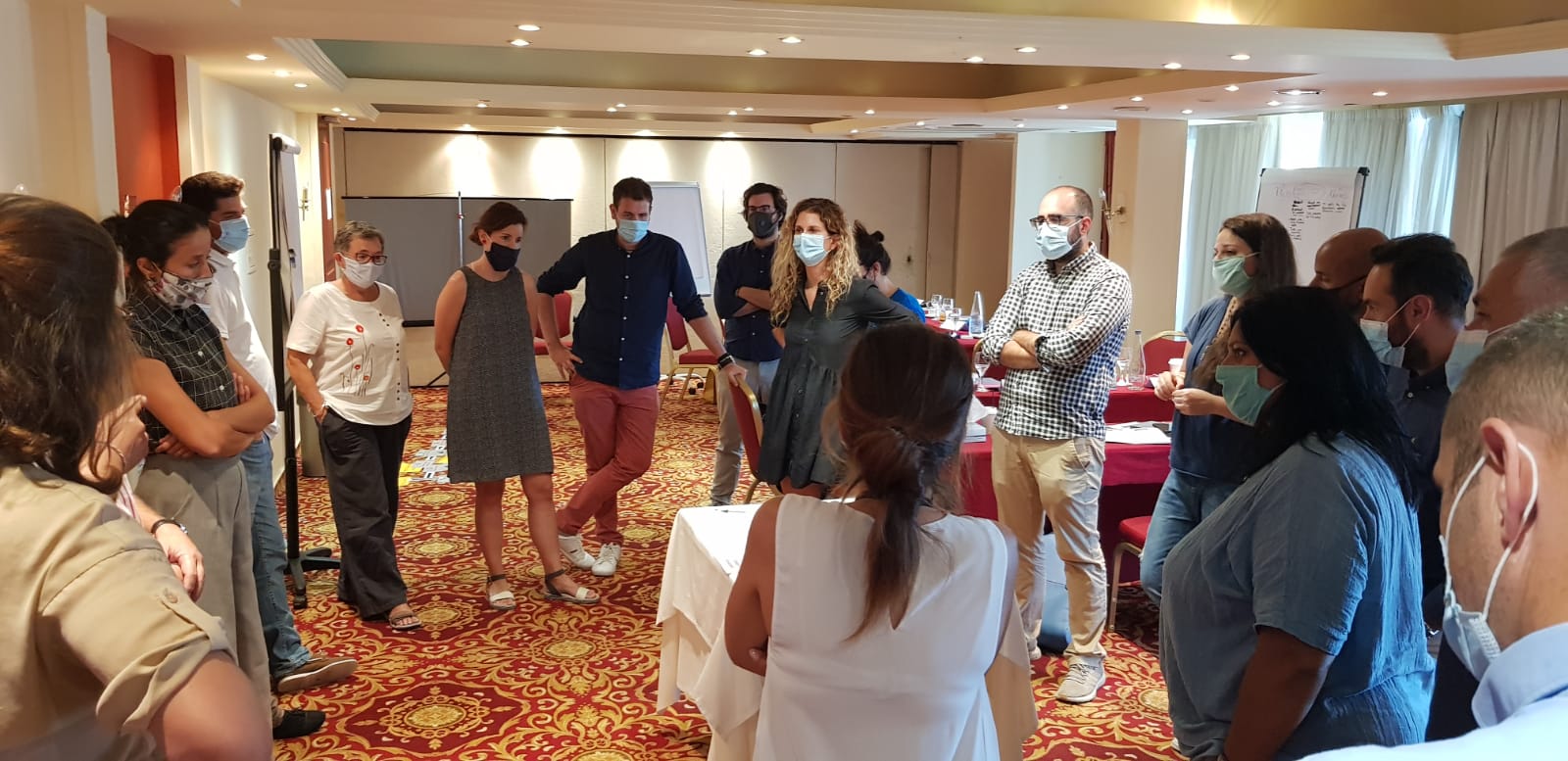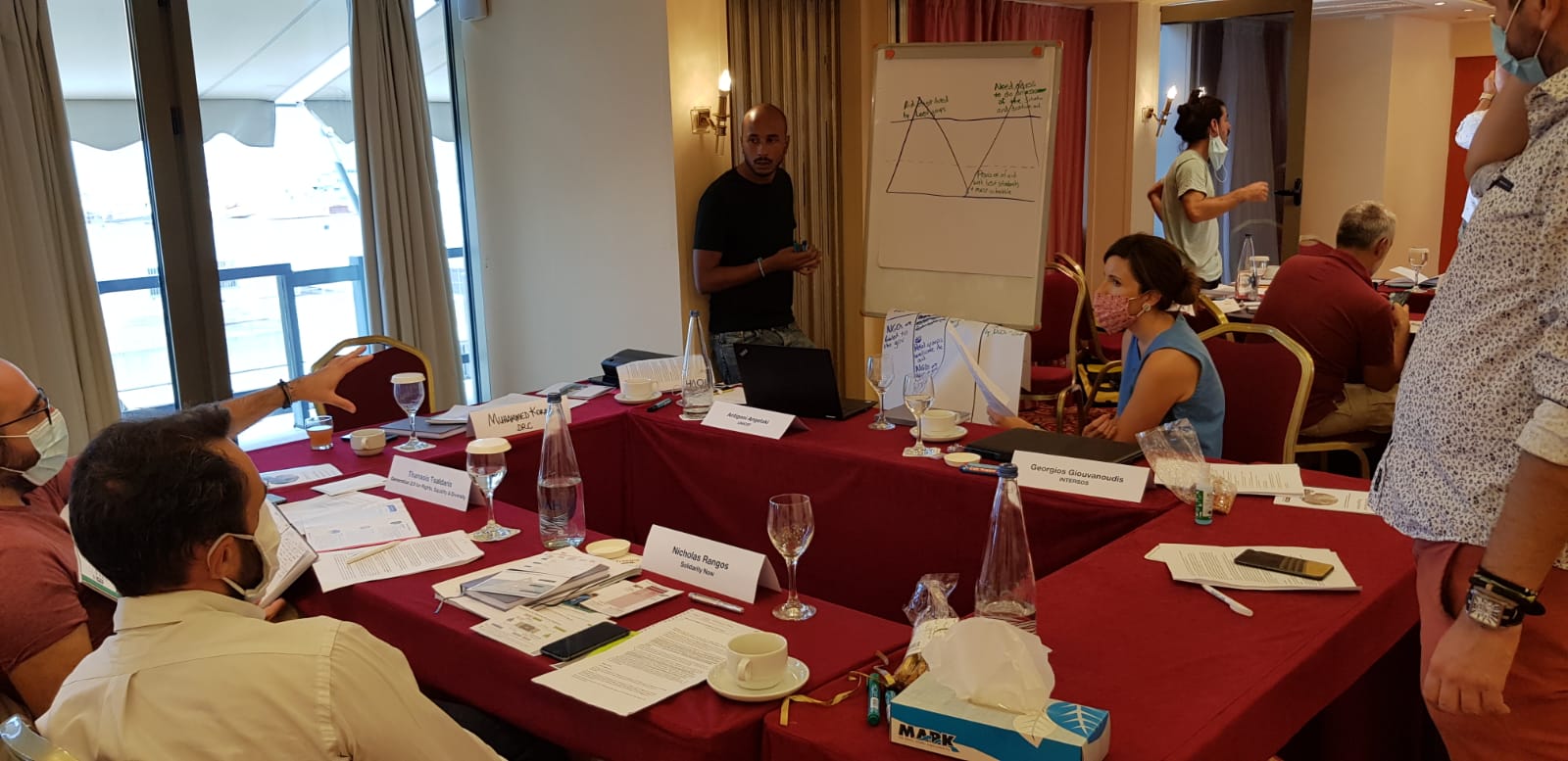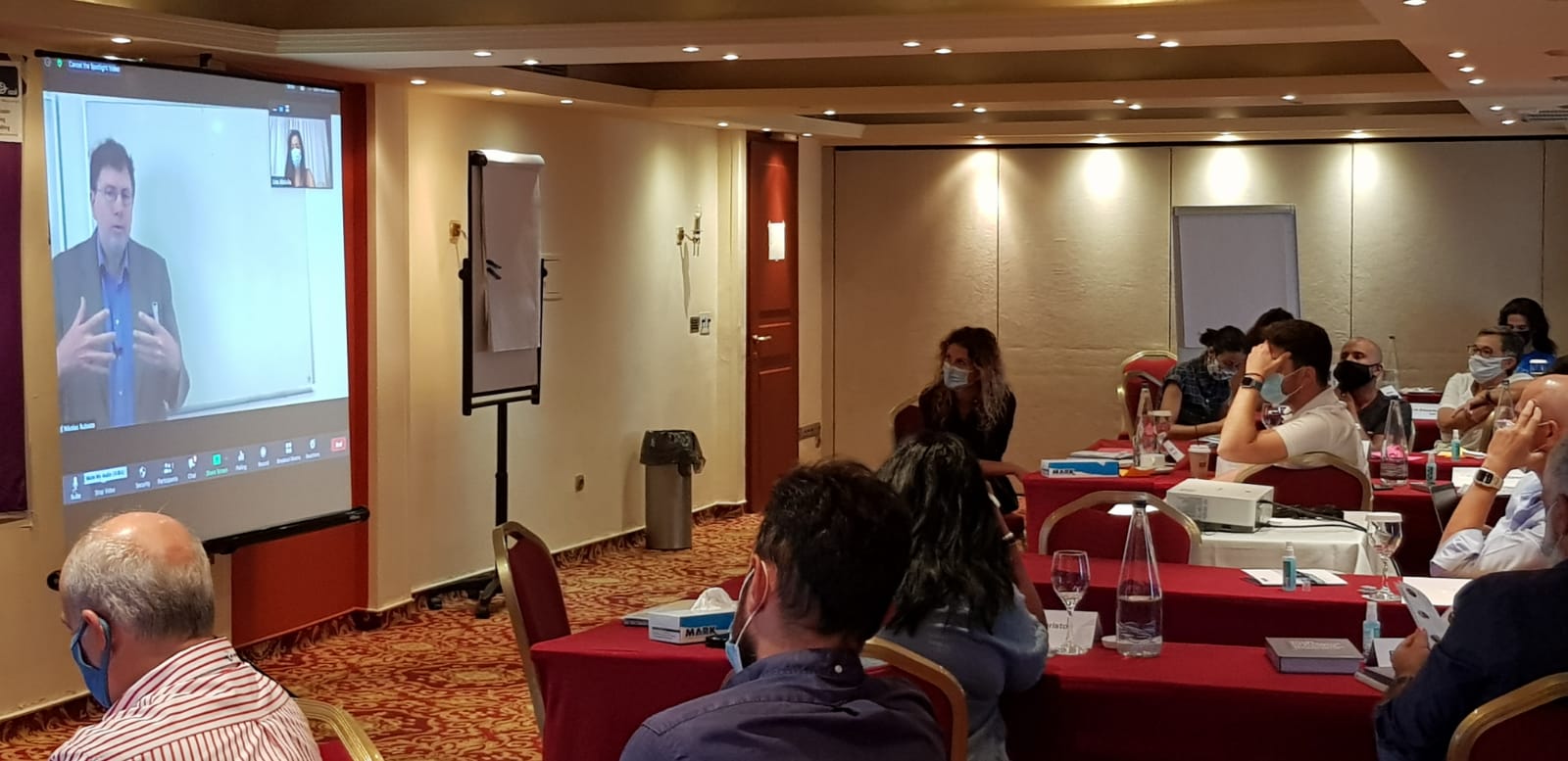
Field practitioners in Greece share their experiences during a CCHN peer workshop on humanitarian negotiation. (Photo: CCHN)
The Centre of Competence on Humanitarian Negotiation (CCHN) started its workstream on forced migration in Europe in September 2020. We have made it a top priority to help humanitarians working with refugees and migrants in Greece to develop their negotiation skills. In September 2020, we held our first peer workshop in Europe – and the first during the COVID 19 pandemic – in Athens.
Stéphanie Ferland, CCHN Thematic Consultant – Research and Development explained, “Greece finds itself at the crossroads of Europe, Asia and Africa and is an important entry point for migrants, refugees and asylum seekers into the EU. The humanitarian community in Greece is working tirelessly to improve access to basic services. To do this successfully, they must constantly negotiate with authorities and communities. When the CCHN announced its intention to hold a first peer workshop on humanitarian negotiation in Athens, more than 80 participants applied for the 25 seats available for the workshop. The need, interest and demand for humanitarian negotiation support in this context is significant and the work that we are accomplishing with the new members of the CCHN community in Greece is only just beginning.”
Tailored support for humanitarian workers
We set up the peer workshop in Athens at the request of strategic CCHN partners such as MSF, the ICRC and UNHCR. Other humanitarian organizations such as the Danish Refugee Council, the International Rescue Committee and Greek NGOs also requested this event.
Six facilitators worked with 20 humanitarians from 14 different organizations during the workshop.
“My initial feeling even before attending the workshop was that this was a very well planned and thought-out process and organization. I had not previously attended a workshop which required some self-evaluation and mandatory preparatory work before it even started. As a newcomer I saw that the platform was easy to enrol in, easy to use and already had a lot of information, articles, videos. I was also pleasantly surprised to see that a few days before the workshop, I could even see the workshop participants and read up on their backgrounds. I spotted a few people I already knew from the context. This created a sense that the facilitators were putting a lot of effort into the workshop – I had a feeling this was not going to be ‘another one of those trainings,” expressed Kimon Ioannides, Programme Coordinator for the Arbeiter-Samariter-Bund (ASB).
Negotiators in Greece were already facing a difficult situation. Now, they are having to deal with COVID‑19 at the same time as helping people in need and respecting their organizations’ mandates.
The peer workshop offered participants an opportunity to enhance their negotiation skills, learn how to use negotiation tools and exchange experiences with other humanitarian workers who face similar challenges.
Eleftherios Konstantopoulos, Assistant Cash-Based Interventions Officer at UNHCR added, “I particularly appreciated the sessions with the case studies where the teams had to apply the knowledge provided, guided by the facilitators. The fact that the workshop had not one facilitator but many was a bonus, not only because different facilitators could focus on their areas of expertise better but also because this made the connection of the teams with them much more direct, increased the time each of them had with their teams and made it more substantial.”

Field practitioners in Greece apply a CCHN negotiation tool to their field experiences and put it into practice. (Photo: CCHN)
Practical negotiation tools for the field
The variety of topics covered during the peer workshop – such as how to plan for humanitarian negotiations, how to identify the specific objectives and priorities of negotiations, mapping the stakeholders and the “negotiation iceberg” – meant that every participant found something in it for them
“The overall experience of the retreat is what made me feel a part of the CCHN community. I truly appreciated the attention given to truly making CCHN an organization that is advised and formed by frontline humanitarians. The retreat exemplified the idea of community of care/practice and despite the global pandemic, it brought together a diverse group of humanitarian professionals from every corner of the world, with the help of Zoom. I am interested in becoming a more active member of the community and I am looking forward to other workshops or events facilitated by CCHN,” stated Muhammed Said Korany, Protection Team Leader at the Danish Refugee Council.
CCHN director Claude Bruderlein used the latest technology to join the workshop from the CCHN studio and provide further insights on the application of the negotiation tools.

CCHN director Claude Bruderlein leads a Zoom session on negotiation tools. (Photo credit: CCHN)
Fostering a global community of frontline negotiators
As well as promoting critical reflection, learning and exchanges, and developing a stronger analytical framework as a basis for more effective negotiations, the CCHN is aiming to foster a community of professionals working in Greece. That community will be further developed in the next few months through more peer workshops, training for facilitators and community meetings – both in person and online.
Peer workshops are also the gateway to the broader CCHN Community of Practice. Participants at the Athens peer workshop were invited to join the annual CCHN retreat in Caux, Switzerland. This year’s retreat took place just a few days after the Athens event, and focused on building resilience.
“The overall experience of the retreat is what made me feel a part of the CCHN community. I truly appreciated the attention given to truly making CCHN an organization that is advised and formed by frontline humanitarians. The retreat exemplified the idea of community of care/practice and despite the global pandemic, it brought together a diverse group of humanitarian professionals from every corner of the world, with the help of Zoom. I am interested in becoming a more active member of the community and I am looking forward to other workshops or events facilitated by CCHN,” added Muhammed Said Korany.
